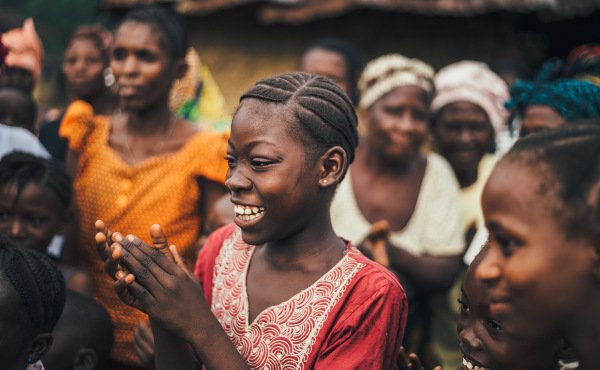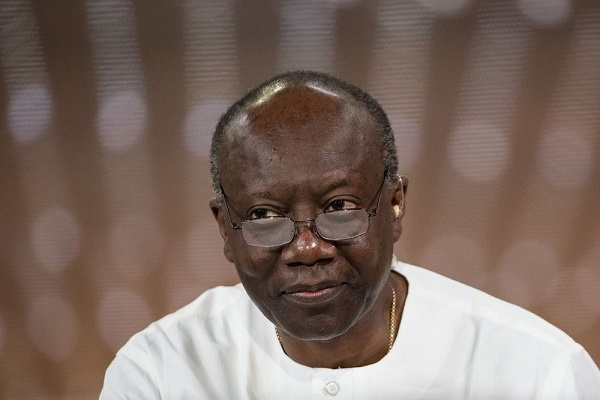The governments of Liberia and Japan have signed the 9th Round of the KR Food Aid 2022 Grant, estimated at US$2.5 million. The aid is a commodity grant intended to raise money for the central bank for the implementation of Economic Recovery Projects, not in the national budget.
The proceed from the grant are expected to be reported in an extra account at the Central Bank of Liberia, for a project proposal by the Liberian Government, which will be approved by the Japanese Government, before its implementation.
Making remarks at the signing ceremony Foreign Affairs Minister Maxwell Saah Kemayah said the purpose of the grant is geared at supporting Liberia’s economic recovery projects that are kit captured in the country’s fiscal budget.
He said Liberia has maintained the integrity of the monetization and will continue to do so to accelerate the national development agenda.
Kenayah noted that since the process began, Liberia has been able to undertake tangible development projects using the proceeds of these sales from the grant commodities, with the consent of the government of Japan.
“The Japanese Counterparts Value Sponsored Projects are ranging from the construction of roads, local housing units, market buildings, warehouses, and bridges, just to name a few, for we as government and people remain grateful to the government and people of Japan for their continuous support towards Liberia Economic Recovery,” Kemayah averred.
These social economic infrastructures, according to Kemayah, are geared toward the creation of jobs and sustainable livelihoods beyond just food aid.
The Liberian Foreign Minister further lauded the Ministry of Agriculture, Corporative Development Agency, and farmers of Liberia for their role in executing such a gesture.
He noted that the inception of the KR Round Food aid to Liberia is dated back as far as 2009 and 2009 when the first consignment arrived in Liberia and this 9th round with a total of 65 thousand 680. 95 metric tons or 2 million 189k 146 kilograms of rice supply this far.
However, Kemayah maintained that the government, in close contact with the Japanese Counterparts Value Fund Secretariat, has identified key future projects for the utilization of proceeds of the sale of the KR Grant 2020, 2021, and 2022.
These projects according to him includes, the extension of the newly built Duala Market and the construction of a modern Parking lot to help decongest the road corridor leading to the Monrovia Freetown Highway.
Besides, he also names the construction of two large market buildings, one in Foyah, Lofa County, and another in Camp Four, Nimba County.
Also, Kemayah maintained that the government has earmarked the construction of a modern wood factory at the Nimba Border to Bong County, while consultation still goes on for the construction of the second wood shop.
He also name the completion of the Lofa Weaving Center in Kolahun District as a part of the project being earmarked to be undertaken from sales of the commodity grant.
He believes this project will help reduce unemployment, by creating more job opportunities for inclusive economic growth and promoting the government’s Pro-poor Agenda for Prosperity and Development and sustainable livelihood for citizens, especially those in rural Liberia.
Kemayah expressed hope that these projects will continue to yield their intended purpose.
For his part, Japanese Ambassadors Extra-Ordinary Accredited Near Monrovia, Mochizuki Hisanobu noted that the grant is a continuation of the Japan Government Food Aid Program to Liberia, valued at 2.5 United States Dollars.
According to him, the food assistance program will also help local farmers in sustainable agriculture production.
Hisanobu maintained that Food Assistance (KR) is a grant aid provided to developing countries with food shortages to buy rice, wheat, maize, or other grains. Based on the food aid rules of the International Grain Agreement, which came into effect as part of the Kennedy Round (KR) at GATT in 1967.
“It began in 1968 and is referred to as “KR” because it came out of the Kennedy Round,”
Ambassador Hisanobu asserted.
Since 2001bynce with contracts with developing countries’ governments, has been; serving as a procurement management agent helping ensure the fair and rapid procurement of food. It also acts as the secretariat for intergovernmental committees following up on how the food procured was distributed and monthly storing accumulation of counterpart funds.


